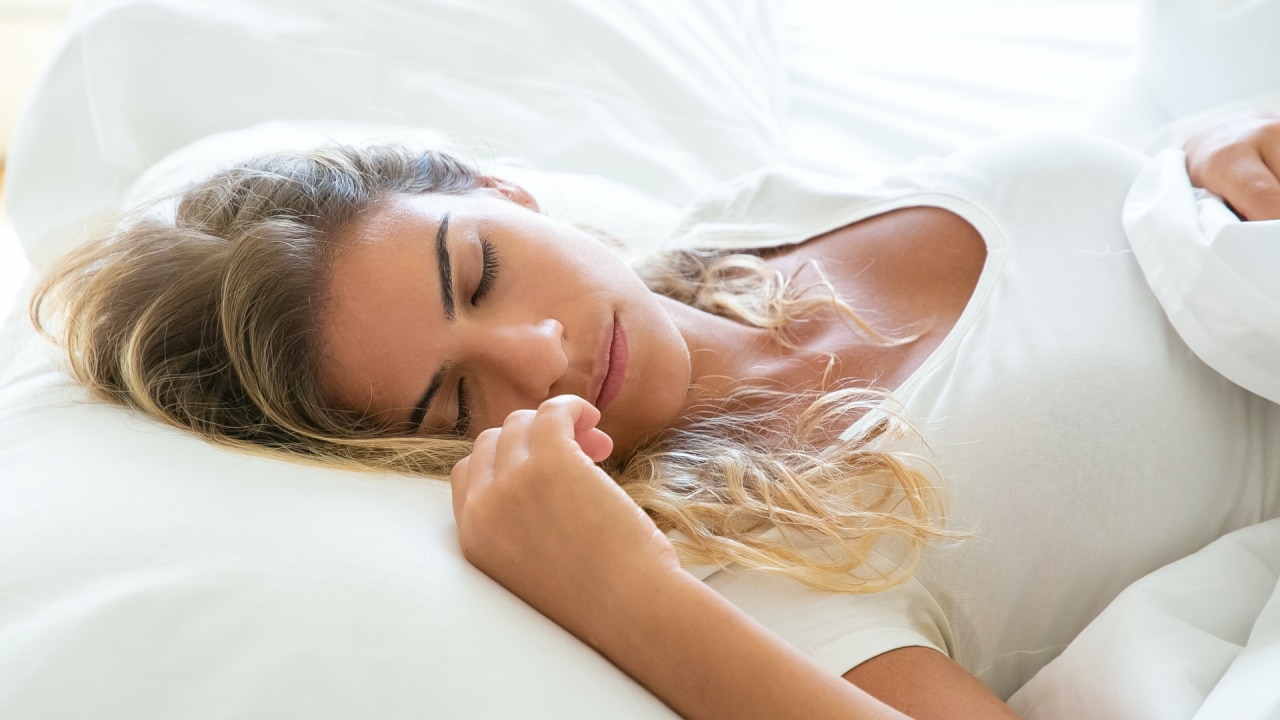The one mistake you should never make when you nap
If you're gonna nap it, cap it

If you're partial to a quick cat-nap each day then you're doing your brain a big favour, experts say.
Brain health is having its moment in the spotlight. Chris Hemsworth made it a trending topic thanks to his National Gepgraphic documentary Limitless, and now researchers are keeping the conversation alive by revealing new data that will have nap lovers of the world rejoicing.
A new study published in the Sleep Health journal has confirmed that taking a short nap during the day can boost brain health as your age – but the length of time you allocate for it makes a difference.
Like what you see? Sign up to our bodyandsoul.com.au newsletter for more stories like this.
Researchers analysed DNA samples and brain scans from more than 35,000 participants aged between 40 and 69. They then compared their analyses and cognition tests between those who had napping genes and those without. What they found was that those who napped were more likely to have greater total brain volume – a measure of health that can determine the risk of mortality.
The participants’ brains showed a difference of around two and a half to six and a half years, meaning nappers’ brains appeared more youthful than those who skip their afternoon kip.
“Our study considers the potential beneficial role of regular naps independent of the influence of chronic disease,” Hassan Dashti, a co-author of the study and assistant investigator in Anesthesia, Critical Care, and Pain Medicine at Massachusetts General Hospital, told Health, whose team concluded that daytime napping can be very protective for the brain.
“The average adult needs approximately eight hours of sleep per night and some studies estimate that at least 40 per cent of Americans are getting less than that,” Yonatan Greenstein, a sleep medicine specialist also told Health.
“For those of us that are sleep deprived, a nap is beneficial in that it partially repletes the sleep debt of an individual,” he said. “This will result in increased energy levels and cognitive performance.”
Researchers at University College London (UCL) similarly found that nappers' brains were 15 cubic centimetres bigger than those of those who don’t snooze –the equivalent of a brain three to six years younger.
"We are suggesting that everybody could potentially experience some benefit from napping," Dr Victoria Garfield told the BBC of the "quite novel and quite exciting" findings.

But there's one thing that makes a world of difference when it comes to your afternoon nap – capping it at 30 minutes. While napping does help with neural plasticity, anything longer than 30 minutes reduces the efficacy of your brain post-snooze, which defeats the purpose of a nap in the first place.
But if you're happy to set an alarm to ensure you're up and at 'em after half an hour? Nap to your heart's content.
How to optimise your 30-minute nap
- Keep naps consistent
- Nap in a dark, quiet place
- Nap horizontally
- Nap in the early afternoon, to ensure you don't mess with you circadian rhythm
- End your nap with exposure to natural light
- Add movement to your wake process
- Have a snack post-snooze
Originally published as The one mistake you should never make when you nap


